Fellows 2025-26

Diversifying the Israeli Diaspora
This year's fellows seek to transcend the typical focus on Israel as a migration-absorbing country in the context of Aliyah, ideologically motivated Jewish immigration. Instead, they aim to explore the dynamic and evolving experiences of Israeli identity beyond Israel, as it intersects with new trends of migration, and multilayered cultures in diverse destinations. They will also analyze the ways this identity intertwines with the increasingly diverse Jewish, Israeli, and Palestinian diasporas, as well as other diasporas of Israeli residents without Israeli citizenship.
As fellows develop their work-in-progress, they will engage with theoretical texts in diaspora studies, migration, and related fields. Each project examines the theme through a different lens, shaped in part by each fellow's discipline, experiences, and perspective. Explore their projects below.
Fellows

Ben Gurion University / University of Florida

University of Milan
Diasporic Dissonance: Hearing Linet’s Voice between Right-Wing Populisms
Linet, a Sephardi Israeli arabesque music star who rose to prominence in Turkey, offers a critical lens into how diasporic performers negotiate belonging in Islamicate contexts shaped by antisemitism and right-wing populism. Framed through the concept of diasporic dissonance, this study examines how gendered abjection, ethnoreligious suspicion, and anti-Israeli bias structure the visibility and vulnerability of Israeli artists. Through archival, media, and performance analysis, the project contributes to diversifying Israeli diaspora studies beyond Ashkenazi–North American paradigms, while tracing how affective and artistic labor are recalibrated amid overlapping populist regimes and shifting political alignments in the wake of October 7.
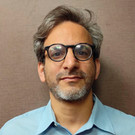
OP Jindal Global University, Sonipat (India) / NYU
Imagining New Diaspora in Contemporary Israeli Art
Anzi’s research explores how immigrant Israeli artists engage with themes of migration, diaspora, and transnational identity. Drawing on cultural, immigration, and diaspora studies, he analyzes how their work reimagines concepts of home, belonging, and borders in the context of global mobility. Through close readings of artistic projects, Anzi examines how new forms of diasporic subjectivity and community emerge. Informed by his own experience as an artist who has lived in India and now in New York, Anzi brings both theoretical and artistic perspectives to rethink the role of diaspora in Israeli culture and contemporary art.
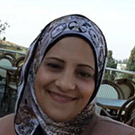
Hebrew University of Jerusalem
Challenges of Migration to the Mediterranean region among Palestinian Religious Muslim Women with Israeli Citizenship
Palestinians residing within Israel possess an Israeli identity through their citizenship and subjection to the Israeli civil legal system—an aspect that deeply shapes and complicates their lived realities. The violence following October 7, 2023, has further intensified the pressures experienced. This inaugural study examines the complex and often fraught expressions of the Israeli dimension of identity among Palestinian, religious Muslim women who formerly lived in Israel and emigrated to various Mediterranean countries after these events. It explores how their multilayered identities interact and are renegotiated within new migratory contexts marked by displacement, political tension, and cultural ambiguity.

University of Cambridge
Is the Israeli case unique? "Old" and "New" Armenian Diasporas
This project offers a comparative lens for understanding how states with strong diaspora imaginaries interpret emigration. In the Israeli context, the distinction between Jewish and Israeli diasporas raises questions of identity, belonging, and loyalty. Similarly, post-independence Armenia has struggled to reconcile its historical celebration of diaspora with growing unease over sustained emigration. By examining how the Armenian press frames those who leave, this study highlights the symbolic tensions that departure generates within national narratives. It contributes to current debates on how both Israeli and Armenian contexts manage diaspora fragmentation and hierarchy, not just through policy but through discourse and representation.
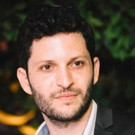
Harvard University
The Fallen among the Weaklings: Changing Emotional Regimes and the Creation of the Israeli Diaspora, 1974-1982
This project examines how 1970s Israeli emigration discourse, particularly concerning Mizrahi border communities, reflected and accelerated transformations in Israel’s emotional regime. Following the 1973 war, Prime Minister Rabin’s infamous characterization of emigrants as “the fallen among the weaklings” revealed elite anxieties about demographic depletion. Paradoxically, this emigration played a major role in legitimizing diaspora communities abroad. Analyzing press and archival sources, Boord traces Israel’s cultural shift from frontier-oriented austerity and restraint toward valuing comfort and emotional expressiveness—epitomized by the growing acceptance of Western diaspora communities. The study highlights emigration’s role in reshaping Zionist emotional politics during this pivotal decade.
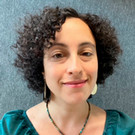
Dartmouth University
From Jerusalem to Côte d'Ivoire: The Digital and Post-colonial Afterlives of Rebbe Nachman
Feldman’s ethnographic research examines the emergence of a Francophone Breslov movement in Israel and its more recent globalization across Francophone geographies, including former French colonies in West Africa. Drawing on interconnected fieldwork conducted in four cities/countries (Jerusalem, Montreal, Rabat, and Abidjan) she explores the articulation of Francophone-Breslov identities in relation to French post-colonial history and racial dynamics, revealing how esoteric Breslov teachings, are utilized by Francophone followers as a psycho-spiritual resource to “heal” from colonial histories of racism, secularization, and assimilation. This research is part of a larger book project provisionally entitled, "The Joy Clinic: Breslov Hasidism and the Theo-Politics of Healing," which explores the Breslov movement's engagement with healing (personal, societal, and cosmic).
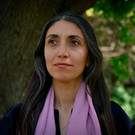
Oxford University
Israeli Communities in Greece Following October 7: Emerging Patterns of Diaspora Formation
This research examines the formation of Israeli communities in Greece following October 7, 2023, contributing to the diversification of the Israeli diaspora beyond traditional destination centers. Drawing on completed ethnographic fieldwork with Israeli women who fled to Evia, Gaya analyzes how security-driven migration creates new expressions of Israeli identity abroad. Her study reveals the complex negotiations of identity, belonging, and family arrangements of these migrants. She will develop these insights in dialogue with other scholars, connecting my empirical findings with broader theoretical frameworks on contemporary Israeli diaspora diversification.

Catholic University of Portugal
The Making of Diasporic Space: Israeli Migration to Rural Portugal
This research explores the emerging Israeli diaspora in Europe, focusing on recent rural migration to Portugal’s Alentejo region. Drawing on ethnographic research, it examines how Israeli migrants navigate identity beyond the framework of Zionist nationalism. Diaspora theory is used to explore the formation of diasporic space in what was once part of ancient Sepharad–Andalusia. Adopting a bottom-up perspective, the study positions diasporic space as a liminal site of identity negotiation, challenging territorialized notions of belonging and proposing new frameworks for understanding Jewish mobility, memory, and cultural continuity between Europe and the Levant.

Queen Mary University of London
Challenging diaspora: Transnational movements between Thailand and Israel
Kaminer’s research examines the history of movements between Israel and Thailand, including those of migrant farmworkers and middle-class expats, pivoting on a 1980s Thai initiative to utilise Israeli expertise in setting up “frontier settlements,” which catalyzed the flow of agricultural labor from one to the other. Emplacing this initiative within the context of the two countries’ changing roles in the capitalist world-system, and drawing connections to the ramifying links between them in such diverse fields as warfare, agriculture, media and tourism, he complicates the received notion of “diaspora” as a unidirectional and permanent movement from origin to destination.
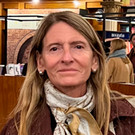
Tel Aviv University
Between lifestyle and opting out: Emerging diasporic subjectivities and transnational engagements among Israeli Jews in Southern Europe
This project examines the emerging mobility of Israeli middle and upper-middle classes relocating to Southern Europe in the context of democratic backsliding, political polarization, war, and insecurity. Often framed as a “liberal exodus” or “lifestyle migration,” less is known about how macro-level political transformations entangle social groups situated between socio-economic privilege and political precarity, while shaping new diasporic configurations. Challenging conventional binaries between lifestyle migration and political dissent, she explores how unsettled times reshape and diversify diasporic identities. Drawing on multi-sited fieldwork in Portugal, northern Italy, and Greece, Kemp examines how “privileged” Israelis negotiate identity, affective and political allegiances, and visions of the future — and how these negotiations converge with legal infrastructures and local reception in new destinations amid an era of illiberalism and democratic decline.

Israeli Diasporas and Jewish Community Building along the Humus Trail? The impact of Israeli travelers in Latin America
After completing their military service, many Israelis take a long trip abroad. This practice has become so popular and prominent that travel routes known as the Hummus Trail have emerged. These routes have varied over time and it is estimated that around 20,000 Israelis visit Latin America every year. Yet, there is little research on the Latin American Humus Trail and its associated phenomena. Is it possible to speak about Jewish community building and new Israeli diasporas around its destinations? This interdisciplinary proposal focuses on:
- Israelis traveling in Latin America
- The portion of them who settled there, especially those who opened businesses
- Israeli digital nomads
- Local Jews, especially businessmen
- Chabad emissaries joining the travelers and emerging communities.
We aim to produce an appropriate theoretical approach considering history, economy and psychology, and to write an article which could lead to a book.
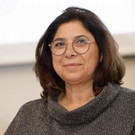
Sapir Academic College
Mizrahi immigrants in Mexico
This study explores the experiences of second and third generation Mizrahi Israelis who migrated to Mexico City, addressing a critical Lacuna in research on Israeli diasporas. Unlike previous studies that have treated Israelis as a homogeneous group, this project investigates focuses on Mizrahim and the ways they navigate ethnic, national, and religious identities within Mexico’s ethnically segmented Jewish communities. Using ethnographic methods and in-depth interviews, the research examines issues of social mobility, identity formation, and transnational belonging. By focusing on an underexplored community in Latin America, the study offers innovative theoretical insights into Israeli-Mizrahi transnationalism and contributes to Jewish Studies, migration studies, and diaspora research.
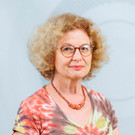
Bar-Ilan University
Former Soviet Immigrant Generation 1.5: Transnational Encounters in Berlin
This sociological research will follow up on Remennick’s earlier study among Soviet-born Gen 1.5 in Berlin, comparing direct migrants from the USSR/FSU with re-migrants from Israel who typically arrived much later. The study aims to contextualize the dialog between the two segments of the post-Soviet Jewish diaspora socialized in vastly different national contexts of Israel and Germany, including their responses to the recent political crisis around Israel and Zionism. She will also explore these immigrants’ interactions with the German mainstream and other migrant communities, as well as their evolving Jewish identity. Remnick’s methods include fieldwork in Berlin and online data collection.
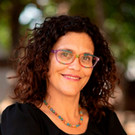
Ono Academic College / Tel Aviv University
Living In-Between: Circular Migration and Transnational Life Between Ethiopia and Israel
This ethnographic study explores a longstanding yet understudied form of circular migration between Israel and Ethiopia, focusing on individuals of Ethiopian origin who sustain transnational lives across both contexts. Through fieldwork in Addis Ababa, Gondar, and Israel, the research examines how people navigate daily life in flux—negotiating movement, obligation, and continuity—without reducing their experiences to fixed notions of identity or belonging. It contributes to debates on lived circularity, limited hybridity, and home-making practices, and extends her broader research on temporality, migration, and the everyday dynamics of navigating life across two interconnected yet politically and socially complex national contexts.
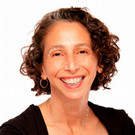
California State University, Northridge
Double Diaspora: Palestinian Israeli Literature and Culture
This project aims to use diaspora studies to read a wide variety of culture produced by Palestinian Israeli writers, musicians, and pop culture icons, which may not typically be considered in tandem, to produce an understanding of diaspora that accounts for the consequences of Israeli sovereignty in what is both the Land of Israel and historic Palestine. Understanding the “double diaspora” of Palestinian Israeli experience also allows us to understand Israel-Palestine as a “double homeland,” expanding the boundaries of our political imagination by reading the contributions of Palestinian citizens of Israel into historically exclusivist Jewish nationalist narratives of Israeli culture.
Affiliate Fellows
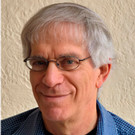
Boston University
Israel’s Long Decolonization Process (1973-present) and the Emergence of an Israeli Diaspora
Karlinksy’s edited volume, "The Modern Israeli and Palestinian Diasporas: A Comparative Approach" (2024) examines key differences and similarities between these diasporas within broader comparative and theoretical frameworks. The violent and protracted war between Hamas and Israel has underscored the deep involvement of Palestinians and Jewish Israelis abroad in their homelands’ disastrous events. This year, he intends to continue pursuing his research on the forces fragmenting Israeli society, with the growth of the Israeli diaspora as a central element.
He argues that since the pivotal 1973 war, Israel’s repeated military setbacks and territorial withdrawals are best understood as stages of forced decolonization and have accelerated internal fissures. The expansion of an Israeli diaspora is a significant manifestation of these fragmentation processes.

New Bulgarian University
Israeli, Jewish, or...? :The multifaceted identity of Israeli migrants in Bulgaria
This study aims to explore the complex identities of Israeli migrants in Bulgaria, focusing on how they perceive, express, and negotiate their multifaceted identities and how these processes affect their social incorporation, community participation, and cultural expression. The main research question is: How do Israeli migrants in Bulgaria construct their identities? The study will explore how they express and represent these identities across various social and cultural contexts. It will also examine the roles of local community organisations, cultural practices, and personal histories in shaping and supporting these identities, as well as how these identities influence their interactions with the local Jewish community and with Bulgarian and Israeli societies.
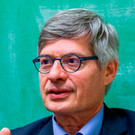
University of Florida / Tel Aviv University
A New Voice in Madrid’s Growing Jewish Polyphony: The Emerging Israeli Community
“We are excited to open the second year of our community school: the Ofek School of Hebrew and Israeli Culture.” The announcement, made in the summer of 2025, was yet another sign of an emerging new community in Spain’s capital: the Israeli community. Madrid’s post World War II Jewish community—more religious, more conservative, more insular, and dominated by Jews of Moroccan origin—is now facing challenges from both the arrival of Latin American Jews, who have begun establishing their own institutions, and the growing number of Israelis recently settling in the city. These Israelis include those who obtained Spanish citizenship as descendants of Sephardic Jews, others who hold citizenship from other EU countries, and some who have gained residency as digital nomads or through real estate investments and the Golden Visa program.